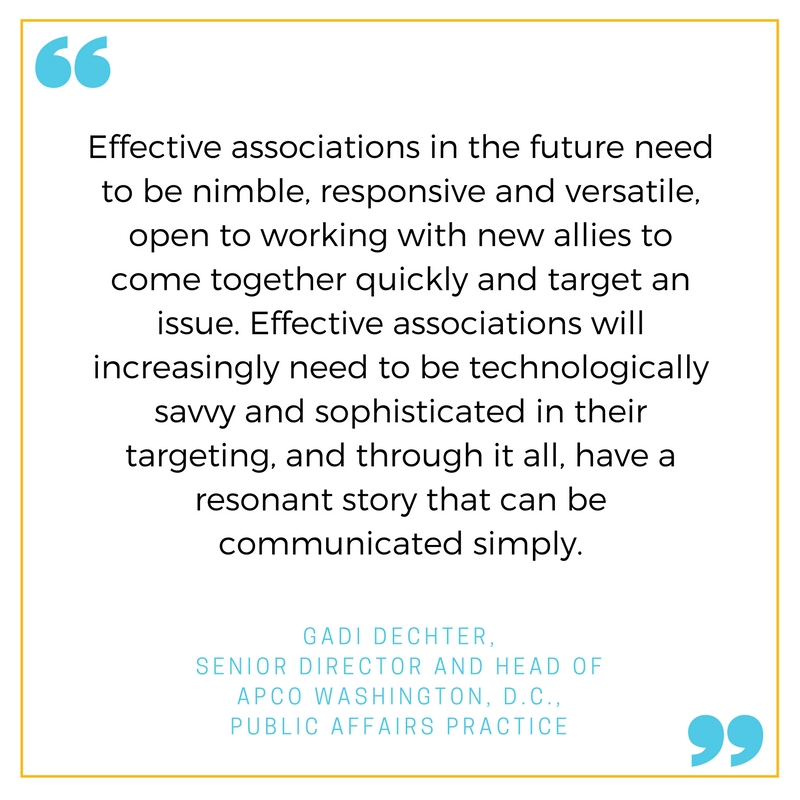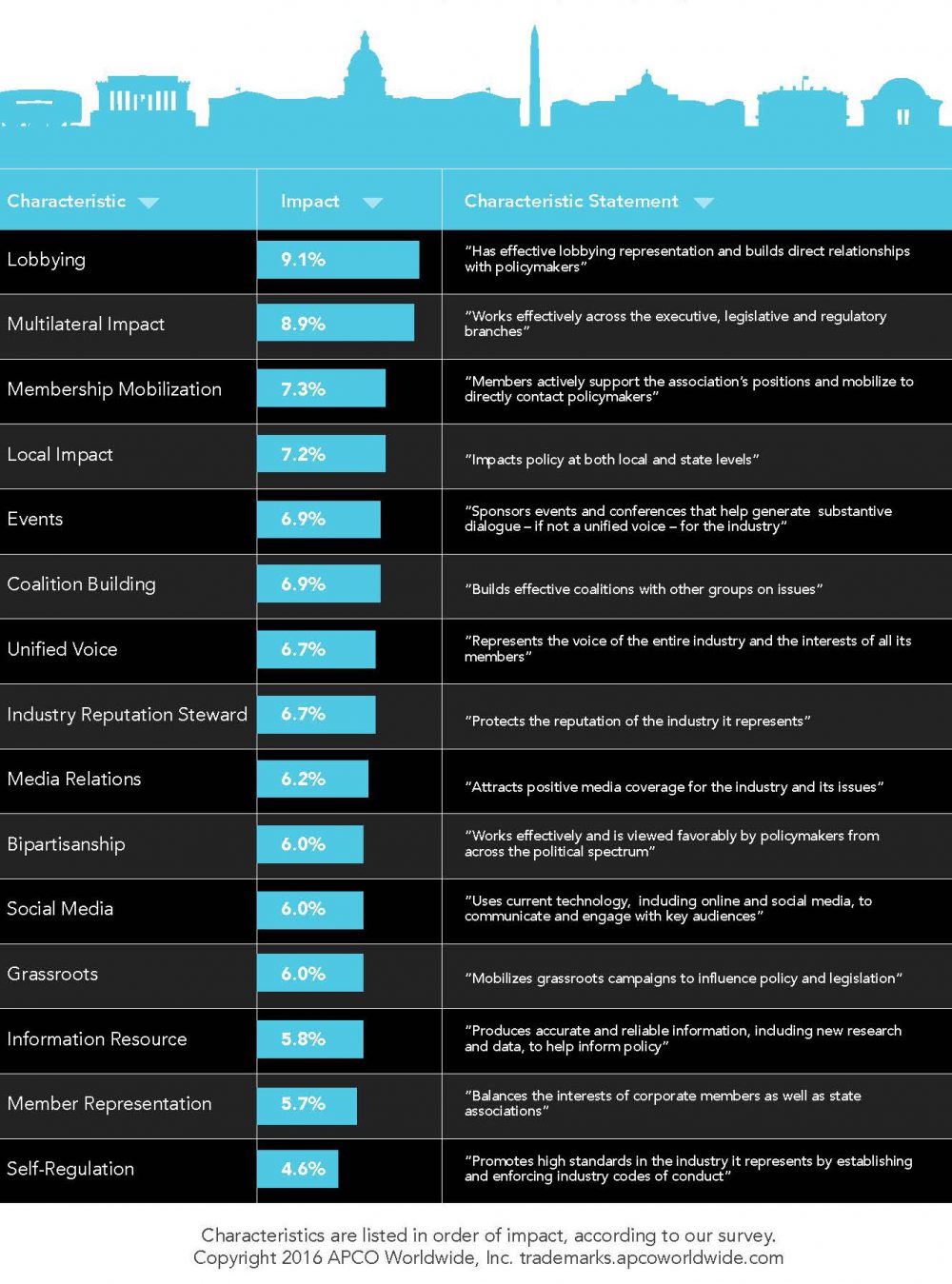This post appears courtesy of APCO Worldwide. The full study is available here

As storytelling makes its rise, the third installment of APCO Worldwide’s annual TradeMarks Study shows that third-party validators and storytellers are among the top differentiators for associations in Washington, D.C.
APCO Worldwide surveyed 306 leaders in Washington, D.C. (a make up of congressional staff, private sector executives and executive branch officials) to identify how associations are viewed in the eyes of its key stakeholders.
APCO’s research found that understanding the changing nature and rhythm of how a Hill staffer receives information is crucial for effective advocacy in the future. As they now routinely receive their information on-the -go via mobile devices, the importance of mobile-optimized and targeted communication is increasingly important to reach these individuals.


About TradeMarks:
TradeMarks is a groundbreaking model developed by APCO Insight (working in partnership with EurActiv in Brussels) that measures the extent to which policy leaders believe associations are effective in achieving their policy goals for their members. The TradeMarks model pinpoints the specific actions that can be taken to achieve optimal impact in each area and quantitatively determines the relative impact of each factor.
By understanding how the associations are viewed on each of the discrete drivers of effectiveness (characteristics) and the relative impact these drivers have in shaping overall effectiveness, the TradeMarks model prioritizes the most important strengths to be leveraged and the most important opportunities to be seized to increase effectiveness.
Methodology:
The TradeMarks Model was informed by more than 20 years of conducting qualitative and quantitative research for associations among Washington, D.C. policy leaders – the Members of Congress and their staff, executive branch professionals and other influencers who shape the opinions of associations.
Based on this experience and conversations with APCO’s partners, a list of 52 characteristics that define association effectiveness on policy issues was developed. A pre-test survey was conducted among policy leaders to isolate and validate the key characteristics that drive perceptions of association policy effectiveness; the modeling identified 15 valid factors that explain what policy leaders consider when evaluating an association’s public policy effectiveness.
This post appears courtesy of APCO Worldwide. The full study is available here.
 Erin Ford is an intern at the Institute for Public Relations and a Masters Student at the University of Florida’s Hough Graduate School of Business. Follow her on Twitter, @erinfordpr.
Erin Ford is an intern at the Institute for Public Relations and a Masters Student at the University of Florida’s Hough Graduate School of Business. Follow her on Twitter, @erinfordpr.



